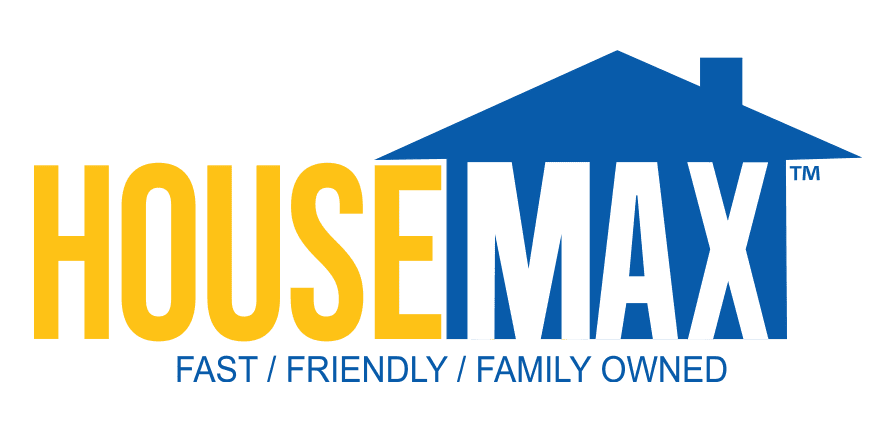Selling a house with a mortgage raises many questions about payment obligations. Homeowners often feel uncertain about continuing their monthly payments while trying to sell. Many worry about managing two potential mortgages if they’re buying another home simultaneously.
The stress of handling mortgage payments during a sale can feel overwhelming. Timing becomes crucial when coordinating closing dates and payment schedules. Missing payments could damage your credit score and complicate the selling process.
You must continue making mortgage payments until your home sale officially closes and the loan is paid off. Your lender expects regular payments regardless of your selling status.
The final payoff usually comes from your sale proceeds at closing. This guide will walk you through mortgage payment requirements during a home sale, ensuring you understand your obligations and timing.
Key Takeaways
- Mortgage payments continue until the house is sold and the lender is paid off.
- The remaining mortgage balance is included in closing costs and paid at closing.
- Missing payments during sale can lead to penalties and delays.
- The sale proceeds are used to fully pay off the mortgage loan.
- Once the mortgage is paid, your obligation to the lender ends.
Do You Still Pay Mortgage When Selling Your House?

Yes, you must continue paying your mortgage while your house is on the market for sale. The selling process requires you to maintain mortgage payments until the property officially changes hands. Your outstanding mortgage balance becomes part of the closing costs. The buyer’s payment helps clear your remaining loan amount with the bank.
Quick sales might require you to make additional upfront payments to settle remaining fees. Longer sales mean you’ll keep making regular monthly payments. If the sale takes time, budget for continued mortgage costs.
Once the sale closes, your lender receives the full remaining balance from the proceeds. The bank then removes their lien on the property. You’ll no longer have any mortgage obligations for this house.
What Happens to Your Mortgage During a Sale
Your mortgage must be fully paid off when you sell your house. The remaining balance becomes part of your closing costs. Your lender will provide the exact payoff amount.
The mortgage payoff includes the principal balance, interest charges, and any extra fees. This amount comes from the sale proceeds. If your sale price exceeds the payoff amount, you’ll receive the difference.
The closing process handles the mortgage payoff automatically. Your title company transfers funds to your lender. When payment clears, the lender releases their claim on your property.
| Step | Action | Outcome |
|---|---|---|
| Mortgage payoff | Pay the remaining balance | Clear title, no liens |
| Closing costs | Cover fees and charges | Finalize sale financially |
| Transfer process | Title transfers to buyer | Ownership switches hands |
The title company ensures all payments are properly distributed. You’ll receive any remaining funds after the mortgage payoff. The buyer then becomes the official property owner.
Timing of Mortgage Payments During the Selling Process

You must continue paying your mortgage until the home sale closes. The monthly payment schedule remains active throughout the selling process. If you miss payments, penalties could affect your sale.
The closing process handles the final payoff of your mortgage balance. Your lender will receive the remaining loan amount from sale proceeds. The title company or escrow agent manages this payment transfer.
Sellers should check their payment due dates against the expected closing date. Working with your lender helps avoid payment overlap or gaps. If closing delays occur, you will need extra mortgage payments ready.
Money from the sale covers your remaining mortgage and closing costs. Once the deal closes, your loan obligations end immediately. The lender then releases the property lien.
The Home Selling Process: Step by Step
Ready to sell? You’ll start by prepping your home, setting the right price, and then marketing it to attract buyers. Once offers roll in, you’ll negotiate and move toward closing, making sure all mortgage and legal details are in order.
Preparing Your Home for Sale
Preparing Your Home for Sale requires specific actions to make your property more attractive to buyers. A clean and organized home creates positive first impressions. Smart preparations will help secure better offers.
Home staging plays a crucial role in the selling process. Remove personal items and excess furniture to showcase space. If rooms appear cluttered, potential buyers might lose interest. Good staging highlights the best features of each room.
Minor repairs can significantly impact a buyer’s decision. Fix dripping faucets and patch any holes in the walls. Replace burnt-out light bulbs and oil squeaky hinges. Small improvements will show buyers that the home is well-maintained.
The selling process needs flexibility and quick responses. Keep the house ready for viewings at short notice. If buyers request specific changes, consider their feedback carefully. Market conditions might require adjustments to your preparation strategy.
Setting the Right Price
The right price makes your home attractive to buyers and ensures a fair return. Market analysis helps determine the best listing price. Professional appraisals provide accurate value estimates.
Current market trends affect your home’s pricing strategy. Similar homes in your area set a baseline for comparison. Local demand and competition influence final pricing decisions.
Pricing too high can make your home stay longer on the market. If you price too low, you might miss potential profits. Smart pricing attracts qualified buyers and creates negotiation opportunities.
Market conditions change regularly, so flexibility matters. You should adjust prices based on buyer feedback and showing results. Regular price reviews help maintain competitive positioning.
| Pricing Strategy | Market Analysis | Result |
|---|---|---|
| Comparative Pricing | Local sales data | Accurate market value |
| Slight Underpricing | Buyer demand | Faster sale, better offers |
| Price Adjustment | Competition check | Maximize profit |
| “As Is” Pricing | Condition of home | Realistic expectations |
| Expert Consultation | Market trends | Optimal price setting |
Marketing Your Property
Good property marketing starts with proper staging. You must clean the space thoroughly and remove personal items. A well-arranged home helps buyers see its full potential.
Professional photos create strong first impressions for your listing. Online platforms need clear images that show every room’s features. Social media channels can expand your property’s visibility to potential buyers.
Your listing description should focus on key property benefits. If issues exist, disclose them upfront to maintain buyer trust. Detailed information about amenities and updates will attract serious buyers.
Cash buyers often look for properties with clear, comprehensive listings. You should remain flexible with showing times to accommodate different buyer schedules. Local real estate networks can help spread the word about your property.
Receiving and Negotiating Offers
Buyers will submit offers after your property goes on the market. You must check each offer’s price, conditions, and payment terms. The right offer should cover your mortgage payoff amount.
Clear communication helps move negotiations forward smoothly. The buyer might request repairs or adjustments to the sale price. You can counter their offer if the terms don’t match your needs.
Time is crucial during the negotiation process. Quick responses prevent buyers from losing interest in the property. If negotiations succeed, both parties will sign the purchase agreement. The final step involves completing paperwork for mortgage payoff and property transfer.
Need a Faster, Simpler Solution? Contact House Max Today!

House Max buys homes directly from owners without traditional real estate processes. You can skip repairs, listings, and showings when selling your property. If you need to sell quickly, we offer immediate cash payments.
Our company purchases properties in any condition across all neighborhoods. We handle all paperwork and closing costs during the transaction. The sale process typically takes less than two weeks.
Homeowners choose us when they need a guaranteed sale without complications. We eliminate the stress of multiple buyer negotiations and property inspections. If time matters to you, our solution provides the fastest path forward.
Contact our team to receive a no-obligation cash offer today. We can schedule a property visit within 24 hours. The entire process stays simple and transparent from start to finish.

Hi, I’m Jason Jones, founder of House Max here in Kansas City. I’ve been in real estate for many years, starting in mortgages and later moving into investing and creative financing. Since 2012, I’ve been helping homeowners sell their houses quickly—whether they’re downsizing, relocating, or facing unexpected situations. Being born and raised in Kansas City gives me the local expertise to guide every transaction with integrity and care. My goal is always to make selling your house simple, fast, and stress-free.







